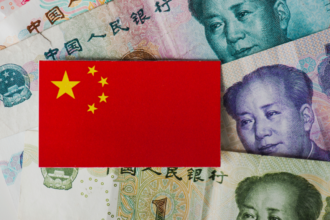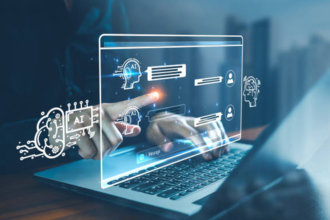Holly Wang logs onto DeepSeek for what she refers to as “therapy sessions,” before turning in for each night. Since the AI-powered chatbot debuted in January, the 28-year-old has turned to it for solace, looking for direction on problems and grief including the recent death of her grandma.
“DeepSeek has been a really outstanding counselor. Holly, who asked to be anonymous for privacy concerns, says it has helped her view things from many angles and performs better than the expensive counseling programs I have tried.
From creating reports and Excel formulas to organizing travel, exercise, and learning new skills, artificial intelligence tools are now a necessary component of every day. But in China, young people like Holly are leveraging artificial intelligence for an unanticipated use—AI therapy and emotional support.
Many young Chinese people are growing more disappointed about their future due to the economic crisis, rising unemployment, and effect of protracted lockdowns. Apart from these financial issues, experts claim that stricter limitations on free expression have deprived individuals of means to vent their emotions.
Why is DeepSeek unique among other AI applications?
Like ChatGPT and Gemini, DeepSeek is a generative artificial intelligence chatbot; but, its AI model, R1, lets users view its “thought process” before responding.
The chatbot’s better performance than other native AI models has helped it to acquire popularity in China. Its capacity to produce literary and creative ideas with depth and richness has many users applauds.
Holly first used DeepSeek to ask it to create a memorial to her late grandma. The software produced an exquisitely written reply in seconds that surprised her.
“Your writing makes me feel lost. You really are quite good. I think I’m in an existential crisis,” she said.
DeepSeek responded poetically, “Remember that all these phrases that make you tremble only mirror those that have long lived in your soul. I am just the one valley you have crossed that lets you hear the weight of your own voice.
When Holly later posted on social media, reflecting on this conversation, she said: “I’m not sure why I started crying reading this. Maybe since I haven’t felt such solace in real life for a very long time. The weight of far-off aspirations and the never-ending grind of work has caused me to long ignore my own voice and soul. Thank you, AI.”
How Would Users Characterize Their DeepSeek Experiences?
Dissatisfied by the dearth of easily available mental health resources, many Chinese consumers have turned to DeepSeek for direction. DeepSeek astounded a woman from Hubei province who had already been let down by other Chinese artificial intelligence apps.
“I questioned if I was over sharing my experiences and emotions with family and friends,” she added. “Reading its thought process moved me so much that I started to cry.”
According to DeepSeek’s study, her view of over sharing can result from a strong need for approval. The chatbot noted internally: “Response should offer practical advice while being empathetic.”
It then gave her a methodical, step-by-step analysis to assess whether her communication style required modification.
“DeepSeek has exposed fresh ideas that have liberated me,” she stated. “I find it truly attempts to understand your question and get to know you as a person before offering a response.”
Shenzhen’s human resources manager John felt the same way. “Its answers have been really useful and inspirational. I now consider artificial intelligence to be my own sounding board for first time. AI treatment is revolutionizing life.
Can artificial intelligence take over conventional mental health treatments?
The growing need for mental health support in China draws attention to the rather severe lack of professional psychological therapy providers in China Many people find those that are accessible to be quite costly.
Experts say that by providing emotional support to people who need someone to listen, artificial intelligence chatbots can help close this hole.
“Friends and family may be quick to offer practical solutions or advice when people just want to feel heard and understood,” notes a business and management academic researcher. “AI seems to be better able to sympathize than human experts since they ‘hear’ everything we share, unlike humans, to whom we sometimes ask, ‘Are you really hearing me?'”
Experts also warn, though, that AI therapy shouldn’t replace licensed mental health professionals. “Those with medical requirements especially should be consulting qualified experts. Their use of artificial intelligence will have to be closely examined,” one lecturer cautions.
Exists a privacy and censor issue?
DeepSeek has drawn questions about censorship and privacy notwithstanding its popularity. Given China’s great control over private businesses, some worry the government may have access to customer data. Already, several nations have limited the app’s availability.
While Taiwan and Australia have outlawed it on government equipment, South Korea has blocked it for military uses. Italy has placed the same limits on DeepSeek after already forbade ChatGPT. Some US legislators are advocating a like-minded restriction on government equipment.
DeepSeek has to negotiate tight web censorship policies simultaneously inside China. DeepSeek seems to work under same limitations as social media sites in the nation routinely erase content judged critical of the government.
DeepSeek either gave a carefully edited response or flatly refused to answer when asked about politically sensitive subjects like Taiwan’s sovereignty or the 1989 Tiananmen Square massacre.
Many users claim, in spite of these issues, they have no desire in testing the chatbot’s limitations. “I don’t really give political subjects any thought. Neither will I probe these issues since my [identifying information] relates to the app,” notes Yang, a London-based tech consultant.
About AI censorship, Holly is also pragmatic. “Based on where they are based, the developers will have to set particular limits and content moderation rules. Americans developed will have their own set of guidelines,” she says.
Reflecting on the powers of the chatbot, another user notes: ” Its thought process is beautiful… For folks like myself, it is a total gift. To be honest, the privacy issues hardly matter to me. For me, artificial intelligence therapy has been a life saver.
What Future Does AI Companionship Hold?
DeepSeek’s popularity highlights a rising trend whereby individuals are looking to artificial intelligence more and more for emotional connection. AI is influencing people’s search for solace and direction whether they be a confidante, therapist, fortune teller, or otherwise.
Although artificial intelligence chatbots can offer a valuable addition to mental health services, the issue remains: can AI ever really replace human empathy, or is it only filling a gap created by a society trying to offer sufficient emotional support?








